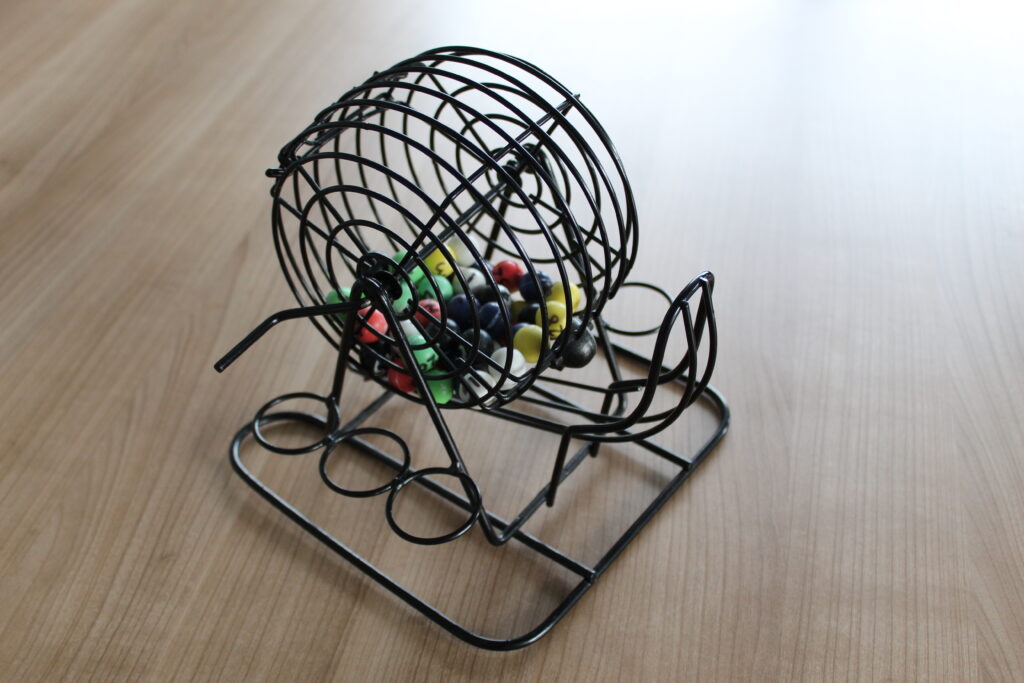
A conversation about mathematics inspired by a lottery machine. Presented by Katie Steckles and Peter Rowlett.

Podcast: Play in new window | Download
Subscribe: RSS | List of episodes

A conversation about mathematics inspired by a lottery machine. Presented by Katie Steckles and Peter Rowlett.

Podcast: Play in new window | Download
Subscribe: RSS | List of episodes
This tweet from the QI Elves popped up on my Twitter timeline:
The odds of being crushed by a meteor are considerably lower (i.e. more likely) than those of winning the jackpot on the National Lottery.
— Quite Interesting (@qikipedia) January 11, 2018
In the account’s usual citationless factoid style, the Elves state that you’re more likely to be crushed by a meteor than to win the jackpot on the lottery.
The replies to this tweet were mainly along the lines of this one from my internet acquaintance Chris Mingay:
Should we not be getting almost weekly stories of people being crushed by a meteor then ?
— Chris Mingay (@GhostMutt) January 11, 2018
Yeah, why don’t we hear about people being squished by interplanetary rocks all the time? I’d tune in to that!
This week, it was announced that from October the UK’s National Lottery, currently operated by Camelot and already providing a veritable Merlin’s cave of probability lessons for maths teachers, will be changing the rules for its main ‘Lotto’ draw. The main changes are that a new £1m prize will be added to the raffle element you didn’t know already happens, and that matching two balls will win a free ‘lucky dip’ ticket in the subsequent draw. The fixed £25 prize for matching three balls remains on the round table (even though it sometimes causes hilarious number gaffes).
But the Sword of Damocles hanging over Camelot’s changes is that there will be an extra ten balls to choose six from (59 instead of 49), dramatically lengthening the odds of winning all of the pre-existing prizes. This is our round-up of the media’s coverage of this mathematical “news”.